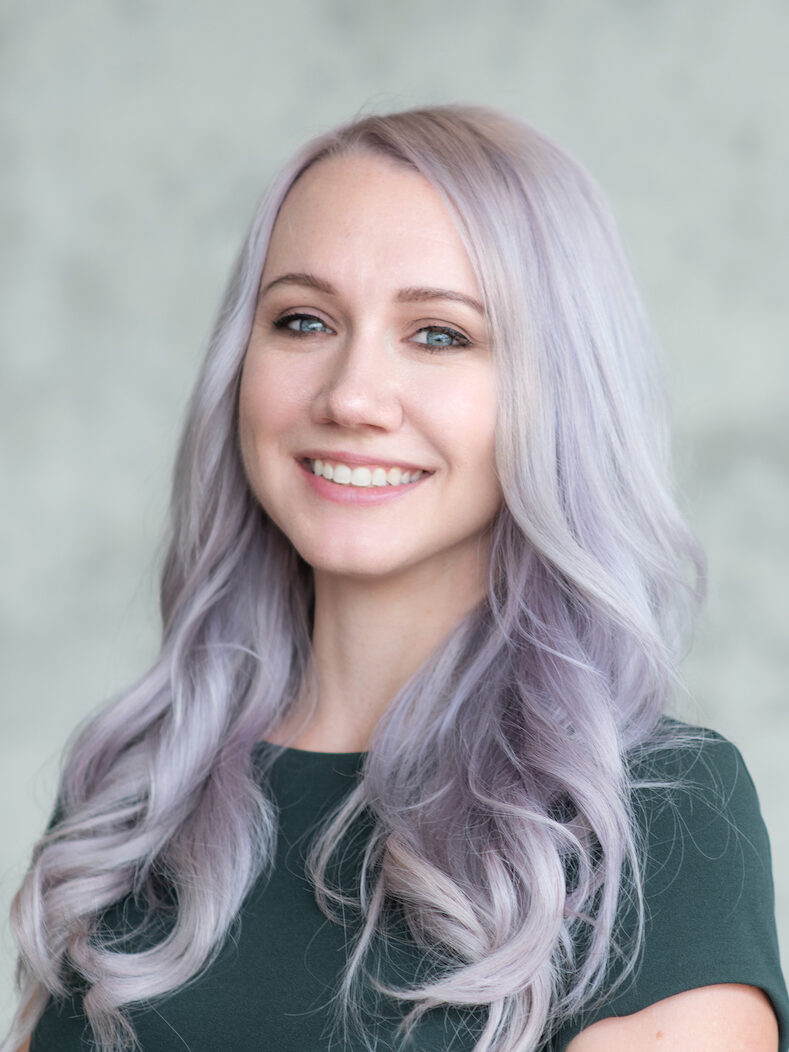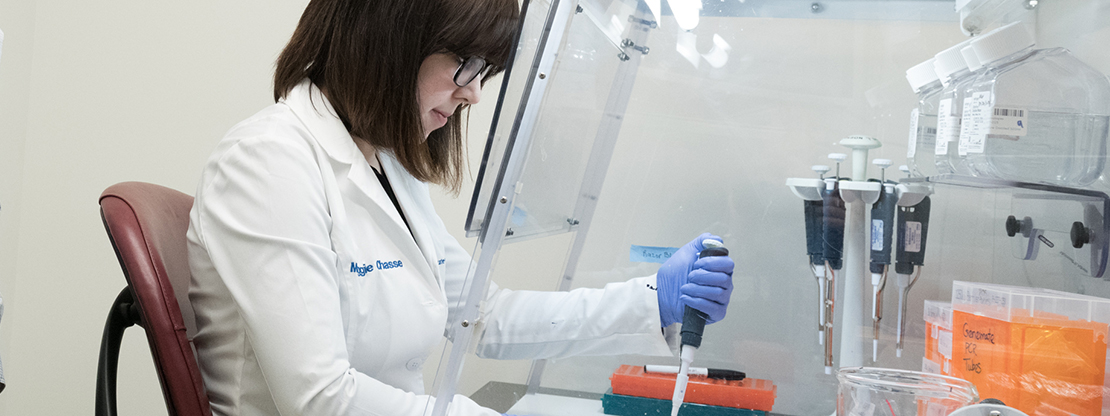Q&A with VAI Graduate School student and F99 award recipient Maggie Chassé
In summer 2020, Van Andel Institute Graduate School Ph.D. candidate Maggie Chassé earned a prestigious Predoctoral to Postdoctoral Fellow Transition Award, also known as the F99/K00, from the National Cancer Institute of the National Institutes of Health. The award provides up to two years of financial support for Ph.D. candidates’ dissertation research, and up to four years of support for postdoctoral training.
Chassé, a Ph.D. candidate in the lab of Dr. Patrick Grohar, is the second Graduate School student to earn the competitive award. In 2019, Robert Vaughan, a Ph.D. candidate in the lab of VAI’s Dr. Scott Rothbart, was a recipient.
We caught up with Chassé to discuss her latest research and what the award means to her as she completes her studies and looks ahead to transitioning to a professional setting.
Q: What does the F99/K00 mean for your future?
MC: I can’t quite put into words what this award means for my future. I am deeply honored and humbled that the National Cancer Institute is investing in an aspiring pediatric cancer biologist and that I can continue to advocate for childhood cancer patients and develop better therapies for them. I am also very grateful for the mentorship and training I have received during my Ph.D. The F99/K00 award can be career-launching and will help me transition to a postdoctoral fellowship in a prestigious lab to continue to my training in cancer biology. From there, I hope to develop my own research program to study epigenetic mechanisms of resistance in pediatric sarcomas.
Q: How will the award support your remaining dissertation research?
MC: This award is allowing my research to come full circle. Despite all of the challenges and frustrations, my mentor and I have accomplished what we set out to do back in the first year of my training. I began my Ph.D. with the hope of defining a mechanism for a drug known as mithramycin to understand why both rhabdoid tumor and Ewing sarcoma were sensitive to it. In my remaining time, I am going to explore why this drug is more effective in rhabdoid tumor than Ewing sarcoma, despite both cancers having similar mutations and both cancers being “addicted” to the same cellular pathway. The end goal will be to translate this drug from the bench to the bedside in a clinical trial in hopes of establishing a new drug for the treatment of these two diseases.
Q: You study a rare, aggressive pediatric cancer called rhabdoid tumor. What makes this an important area of research in the pediatric oncology field?
MC: Rhabdoid tumor is a devastating disease with extremely poor survival and no current standard of care — even in the year 2020! Because of this urgent need for more options for these patients, I am working to develop more effective and safer therapies and apply what we have learned in rhabdoid tumor to other pediatric cancers, such as Ewing sarcoma. Furthermore, while rhabdoid tumor is very rare, the mutation that occurs in this cancer is in a protein complex that is altered in approximately 20% of all human cancers. Therefore, the therapies that I am developing for rhabdoid tumor may be applicable to a wide variety of cancers, including many adult tumors.
Learn more about Van Andel Institute Graduate School by visiting vaigs.vai.org.
Research reported in this publication is supported by the National Cancer Institute of the National Institutes of Health under award no. F99CA253749. The content is solely the responsibility of the authors and does not necessarily represent the official views of the National Institutes of Health.

